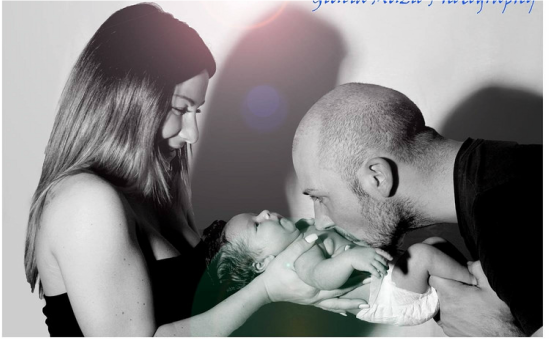It starts even before your little bundle of joy arrives. The moment you find out that you are expecting, your relationship takes a new direction with your partner. Your communication and problem solving skills will be put to the test and are essential skills to help you adjust on your new path. However, this also means that one of the challenges facing you will be to maintain a sense of closeness and satisfaction in your relationship.
For many couples, the first baby often brings on a very bumpy journey. All of your joy about having a baby does not diminish, but conflict does arise when baby comes home. There are good reasons for this. Your first baby will bring up conflicts that your relationship has not seen before and they often do not have easy answers. Having your first baby has likely changed your goals, your needs, and how you dispense your resources. And most likely, these changes do not take effect on your marriage until after baby arrives. You become flooded with brand new situations that need a decision, testing your problem solving skills. This may not leave you and your partner with very much time to make these decisions. And with every decision, there is a potential for disagreement since what you want may not be to your partner's advantage and vice versa.
How couples tend to resolve conflicts before baby arrives often becomes less effective when baby is here. For one thing, your stress level will be much higher (due to lack of sleep, feeling overwhelmed, etc) so your critical thinking and communication skills are not as sharp. It will also be much more difficult to compromise and empathize with your partner for this reason. However, all is not lost. Here are some dos and don'ts for life after your first baby.
First baby Don'ts:
For many couples, the first baby often brings on a very bumpy journey. All of your joy about having a baby does not diminish, but conflict does arise when baby comes home. There are good reasons for this. Your first baby will bring up conflicts that your relationship has not seen before and they often do not have easy answers. Having your first baby has likely changed your goals, your needs, and how you dispense your resources. And most likely, these changes do not take effect on your marriage until after baby arrives. You become flooded with brand new situations that need a decision, testing your problem solving skills. This may not leave you and your partner with very much time to make these decisions. And with every decision, there is a potential for disagreement since what you want may not be to your partner's advantage and vice versa.
How couples tend to resolve conflicts before baby arrives often becomes less effective when baby is here. For one thing, your stress level will be much higher (due to lack of sleep, feeling overwhelmed, etc) so your critical thinking and communication skills are not as sharp. It will also be much more difficult to compromise and empathize with your partner for this reason. However, all is not lost. Here are some dos and don'ts for life after your first baby.
First baby Don'ts:
- Don't take your partner head on when you're angry. This creates a tug a war situation where only one of you will have a say in the final solution, or it can drive you to different parts of the house, making the decisions on your own. Engaging in this type of pattern will only contribute to more difficulty resolving conflicts later.
- Don't agree to something, but hold resentment. If you are not pleased with the baby arrangements (ie. babysitting, sleep schedule, lack of couple bonding time), then speak your mind about it. Agreeing to make peace, but holding resentment will only make your feel slighted and make future decisions more difficult.
- Don't underestimate the differences in your emotional needs. With baby in the picture, you and your partner's emotional needs likely have changed. Moms tend to have a stronger emotional need for family commitment now more than before, wanting her husband to step up as a father figure and participate in caring for baby. Dads tend to have a stronger emotional need to provide adequately for mom and baby, and feel admiration from mom for the role he is performing. These differences may drive your decision making and may be the cause of your constant conflict.
- Do keep a couple centered, rather than child-centered, relationship. Your baby demands a lot of attention and this is not temporary. Love your baby, provide, and meet their needs, but keep in mind that children thrive most when parents are also happy in their relationship.
- Do talk with your partner everyday. Having a dialogue every day about your fears, concerns, frustration, cute baby moments, etc. can bring flow to your communication and make it easier to talk about big decisions, rather than just talking when you have a problem.
- Do say "no" to others. Balancing your marriage, being first time parents, and your job is overloading at times. So don't guilt yourself into taking on family or community responsibilities if you already feel overwhelmed. This will only make the adjustment to your new family feel harder.
- Do accept help. Being a first time parent means that you have a lot to learn, from yourself, your partner, and others. Don't expect perfection from you or your partner, and let go of any guilt you feel about taking a day or night off if a family member offers to help. Your baby will be just fine with someone else on watch and you'll be a more refreshed parent when you get back.

 RSS Feed
RSS Feed
